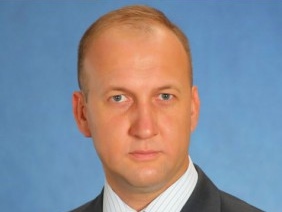
‘Tatarstanization’ of Russia Coming to an End, LDPR Activist Says
Publication: Eurasia Daily Monitor Volume: 10 Issue: 46
By:

When the world was asking just over a decade ago “Who is Mr. Putin?” Mintimir Shaimiev, Tatarstan’s president at that time, said that “[Vladimir] Putin wants to do things in Russia just as they are done in Tatarstan” (Zvezda Povolszhya, March 2). By this he meant the creation of a state based on the sale of oil and gas. Nikolai Atlasov, the head of the Liberal Democratic Party of Russia (LDPR) branch in Naberezhnye Chelny, says that to a large extent, Putin has done just that, but the differences in scale between the Russian Federation and the Republic of Tatarstan mean that the “Tatarstanization” of the former is approaching its end.
In an essay in the latest issue of the newspaper Zvezda Povolzhya, Atlasov suggests that this parallel gave Tatarstan far greater freedom of action over the last decade than would otherwise have been the case, and consequently, the approaching “end of the Tatarstanization” of the Russian Federation will have enormous consequences for the Republic of Tatarstan and the Tatars of the Russian Federation more generally (zvezdapovolzhya.ru/obshestvo/konets-tatarstanizatsii-02-03-2013.html).
“Russia is pregnant with change,” Atlasov says, although it is far from clear just what the country will give birth to. Speculation about the specifics is thus unwarranted. But it is useful to think about what place Tatarstan will have in the “brave new world” that is emerging and even more what “risks and problems” it will face. This is especially true since Tatarstan, although “only one of the 83 regions” of the country, was the model for what Putin has done in the Russian Federation over the last dozen years.
Over the last 12 years, none of the other federal subjects have done as well financially as Tatarstan—or at least its elites—with the possible exception of Chechnya, the LDPR activist says. And consequently, the elites of Tatarstan have found themselves comfortably included within “the economic and political system of Putin’s Russia,” something that should have surprised no one who understood what Shaimiev predicted.
Obviously, circumstances have changed dramatically since 2000, but the former Tatarstani president was absolutely right. Tatarstan’s system became Russia’s, with its reliance on the bureaucracy and especially force structures, state control of the economy, “marginalization of the political opposition,” reduction of social activity, “devaluation of political institutions in favor of ‘hands-on’ administration,” and effective measures to gain “the social support of the population.”
Tatarstan’s State Council, Atlasov argues, “ceased to be a place for discussion long before the same thing happened to the Russian parliament, and the Tatar courts” were brought under administrative control long before that happened in Moscow. Moreover, the Kremlin appointed the president of Tatarstan long before Moscow’s nomination of regional officials was introduced in the rest of the Russian Federation. And Russia’s well-known use of siloviki also had an “analogue” in earlier Tatarstani practice
If one examines the biographies of municipal leaders and their deputies in Tatarstan, Atlasov continues, one sees that “many of them have roots in the force structures,” the militia. Moscow, of course, has drawn its siloviki from the special services, but the principle is the same. Yet, the key commonality is to be found in economics: “The ‘Tatarstanization’ of Russia became possible only after Moscow borrowed and extended to the entire country the economic model” that Tatarstan had created, a model “based on the concentration of financial resources in the hands of the state.”
This symbiosis between Kazan and Moscow worked well for almost a decade, but the economic crisis has effectively put an end to “the period of the ‘Tatarstanization’ of Russia.” So far, the authorities in Tatarstan have been able to employ this model with few changes, but Russia “has turned out to be too large and too educated” for it to work. Many Russians in the capitals are appalled by these arrangements and demand that Russia change and resume “its natural historical mission,” which is—to use the “politically incorrect” words of Friedrich Engels—to “play a civilizing role” among the non-Russians, including the Tatars.
Those Russians now challenging Putin’s regime “will civilize us and that means we must think about how to act in the future and prepare ourselves.” In the best case scenario, there will simply be a reduction in federal subsidies, but even then, the Tatars, who have “all the symptoms of the ‘Dutch disease,’” are going to find themselves in a difficult position. But the likelihood is that Moscow will make more radical demands. And then the question becomes: how will Tatarstan respond?
As might be expected in reaction to any statement by an official of the party headed by the often outrageous Vladimir Zhirinovsky, Atlasov’s article is provoking heated debate in Tatarstan. Many are dismissing it out of hand, but the intensity of the discussion suggests he has touched a nerve and a truth about Tatarstan and its future.




